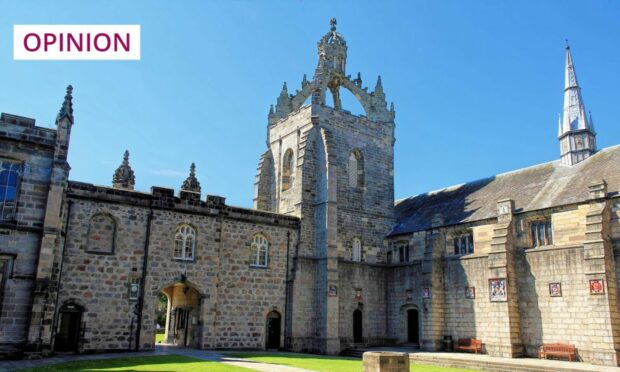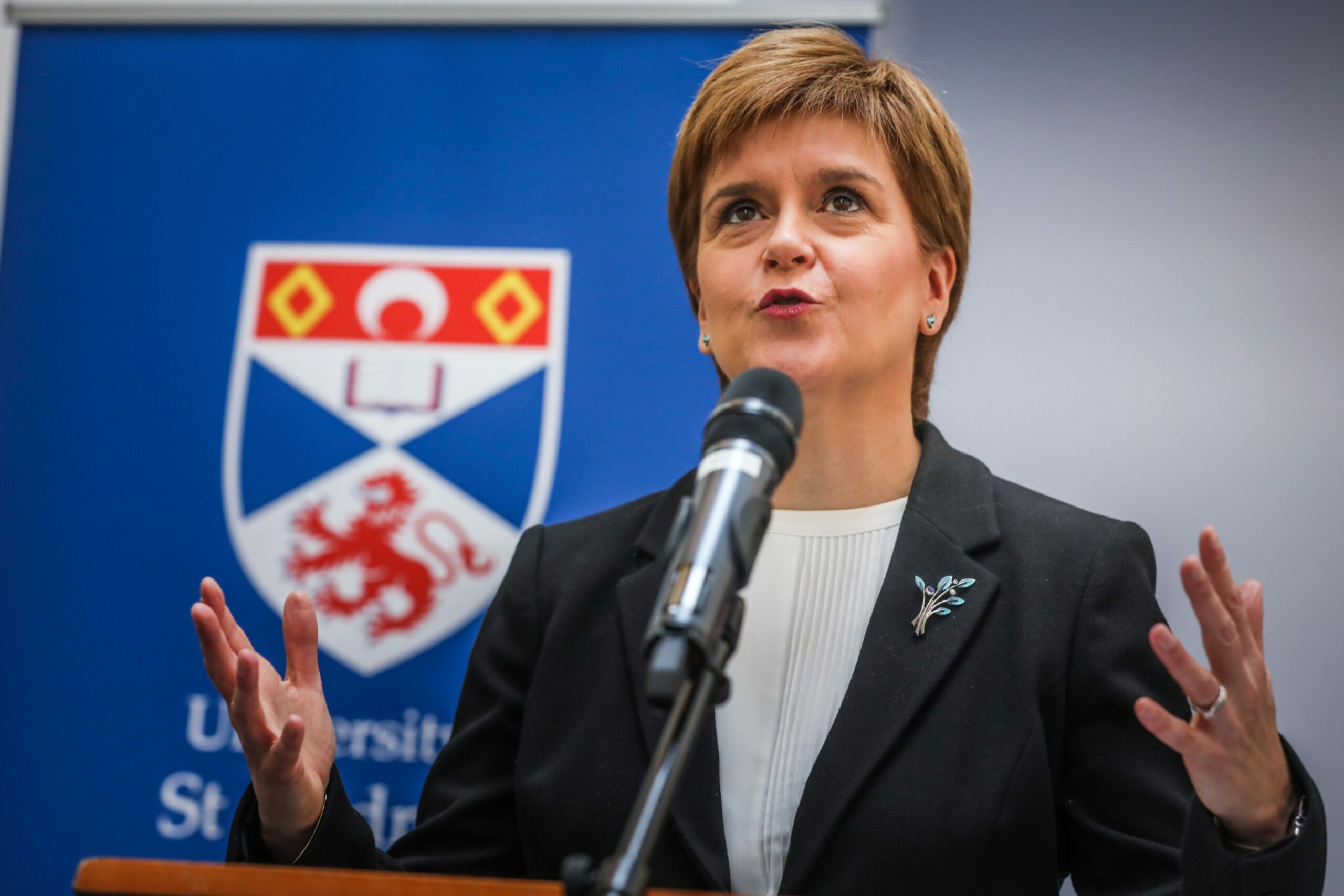It should not be controversial to make the case that those who benefit most from attending university should give something back, writes Chris Deerin.
The trick to becoming a national institution, if you’re so minded, is really just to endure.
If you can survive the always treacherous early years, stay standing during the inevitable failures and scandals, and outlast the great cultural and political shifts, then you’ve pretty much cracked it.
Take Scotland’s ancient universities. The eldest of them, St Andrews, was formally constituted by papal bull in 1413, two decades before the trial of Joan of Arc, three before Johannes Gutenberg invented the printing press, and a century before James IV was killed at the Battle of Flodden Field. Glasgow followed in 1451, Aberdeen in 1495, and Edinburgh in 1583.

Next to this kind of heritage, Holyrood’s two decades of existence appears what it is: paltry. The Scottish Parliament has some living and some growing up to do before it deserves the same respect due to our centres of higher education. And let’s not trouble ourselves to compare the respective quality of minds.
Yet, for all the global reach of their research, their prestigious international partnerships, and the invaluable soft power they provide for Scotland, the academics must still answer to the politicians.
Universities are not universal – yet all taxpayers fund them
Each university must reach an annual agreement with the Scottish Government on “ministerial priorities” before being given access to public funds. The total being spent in the 2022-23 academic year is just over £1.1 billion, an annual increase of 2%, which, in this time of high inflation, is a substantial real-terms cut.
It’s still a big sum on the face of things, of course. But, due to the way Scottish universities are funded, they already receive just £7,700 for every student, compared to the £9,250 received by English institutions.
As businessman Sir Ian Wood pointed out in a recent newspaper article, the attempt to move away from North Sea oil and gas and build a world-class renewables industry requires a steady stream of high-end graduates. Short-changing our universities only undermines this effort and raises the risk of yet another generational missed opportunity.
It’s no secret that government budgets are tight and, when Chancellor Jeremy Hunt makes his autumn statement on Thursday, they will become tighter still. Difficult choices will subsequently have to be made by stand-in Scottish finance minister John Swinney in order to protect core public services.
Universities provide a service to a particular, limited part of the population, the graduates from which tend to go on to enjoy a higher standard of living than those without a degree
There isn’t much you can do for universal services such as schools and hospitals, which are entirely reliant on the public purse for their funding. Universities are different, though – they are not universal, in that they provide a service to a particular, limited part of the population, the graduates from which tend to go on to enjoy a higher standard of living than those without a degree.
Yet, every taxpayer in Scotland, regardless of their own circumstances, funds this leg up for a privileged few. This is an ideological decision by the SNP that benefits the better-off.
Scottish universities are refusing Scottish students
Another consequence of the Nationalists’ refusal to allow graduates to make any contribution to the cost of their education is that our universities are instead taking in more and more fee-paying foreign students in order to fill out their budgets. This means they are increasingly refusing places to Scottish students – there is a cap in operation.
As a report by my think tank, Reform Scotland, reveals, since 2006 there has been an 84% increase in the number of Scottish-domiciled applicants refused entry to a Scottish university. That SNP ideology – “till the rocks melt wi’ the sun” – is actively and provably damaging both the life chances of Scottish children and the future prospects of the nation.
In an ideal world, many of us would happily provide a free education for all citizens, from cradle to grave. But we do not live in such a world. We live in a world of trade-offs, of governments being able to fund some things but not others, of picking your priorities.
As time passes, the funding gap between Scotland’s universities and those in England, not to mention the best institutions elsewhere in the world, will grow. There will continue to be Scottish successes due to brilliant people doing brilliant things, but the financial strain will become more apparent, and we will fall behind.
Some universities are better than others at bringing in private funding and attracting generous donations from their most successful former students. But that can never be the whole answer, and certainly not for all of them, and, anyway, presumably challenges the dominant SNP view that the state should always hold the whip hand.
‘No win, no fee’ education makes most sense
It should not be controversial to make the case that those who benefit most from higher education should give something back. It says much about the shrunken parameters of Scottish politics that it often is.
There could be schemes that cut or scrap repayments for graduates who remain in Scotland, working in certain sectors for set periods of time
As Reform Scotland argues, it would be perfectly reasonable for graduates to contribute towards the cost of their higher education through a deferred fee, to be repaid once they earn more than the Scottish average salary – the amount you pay back, if indeed you pay anything at all, would be based on what you earn.
There could be schemes that cut or scrap repayments for graduates who remain in Scotland, working in certain sectors for set periods of time.
The financial expert Martin Lewis has referred to this as being, in effect, a “no win, no fee” education. It would end the cap on Scottish-domiciled students and ease the burden on public finances in the longer term. At some point, we will have to decide we have endured the SNP’s ideological purity for long enough.
Chris Deerin is a leading journalist and commentator who heads independent, non-party think tank, Reform Scotland




Conversation